Empowerment of women in political participation promoted in SI
11th August, 2014

(Photo Credit: Island Sun)
THE UNITED Nations Entity for Gender Equality and the Empowerment of Women (UNW) is working in collaboration and partnership with the European Union (EU) funded ‘Strongim Mere’ project to promote women’s political participation in Solomon Islands and in the pacific region.
In a media conference yesterday, the UNW and EU had invited Samoa’s Electoral Commissioner, Papalii Malietau Malietoa, who is a champion in empowering women of Samoa in Parliament, as their keynote speaker focusing on the empowerment of women to improve their statistics of this country on women’s participation in parliament.
UNW Technical Advisor on the Advancing Gender Justice in the Pacific Programme, Tonni Ann Brodber in her opening remarks said, the UN is happy to be collaborating and partnering with the EU on this project to promote women political participation in Solomon Islands.
She said the important element of the project is to share pacific experiences, to find out what has been done in other countries to promote women’s political participation in the pacific region and to share this as better practices that could be adopted in countries such as the Solomon Islands.
Lorena Elvira Ayuso, European Union Attaché to Solomon Islands, said one of the problems in the pacific is gender based violence with a very low participation of women in parliament.
She said EU has provided SBD$35 million to support the electoral process in Solomon Islands alongside the Australian aid which was launched last year.
Keynote speaker and Electoral Commissioner of Samoa Papalii Malietau Malietoa shared what his country has done on Temporary Special Measures (TSI) to improve women participation in politics.
Malietoa said his country Samoa has been independent for over 50 years and in those 50 years they have had a lot of women in their parliament which includes a female Deputy Speaker, three Ministers of the state and several female Members of Parliament.
However, he said that during 2011 general elections the number of women decline from four which had been elected in 2006 to two, and the government was of the view point that something had to be done to ensure that there was a minimum number of female representation in the 49 seats of their national parliament.
“There we came about with our Temporary Special Measure (TSM) which was to implement special seats or floating seats in our national parliament to deal with that issue and the number of those floating seats is five.”
“So after 2016 and to the future, there would always be a minimum of five Samoan women in our national parliament,” he said.
He said as an Electoral Commissioner, he believes that is the good standard to establish, and a good standard to set, not only nationally, but perhaps regionally and internationally as well.
“We took the particular perspective that we needed legislation, because for us it wasn’t signed in our constitution that we had 49 seats, so if we were going to add an extra five floating seats, we needed to amend the constitution and we also needed a special legislation to ensure that those seats are reserved solely for females.”
“So that is the avenue we took to implement the temporary special measures to support female participation in our political system and also at the table where political decisions are made,” he said.
He said when the matter came to the time to passed the legislation, they have 44 Member of parliament voted for it, and only 5 MPs who were on travel and not in parliament that day who didn’t vote for.
“So from my perspective, I think there was an unanimous decision by our national parliament to pass that piece of legislation,” he said.
He continued that this was their avenue of achieving their TSM and that was to enshrine it in legislation.
“It signals unconditionally that we are serious about the issue, that we are serious about female representation and participation in our political system and where political decisions are made,” Malietoa said.
He said that for other countries in the region, they would have to look at their context of their individual country and see what is the best methodology for achieving what they want to achieve in terms of women’s political participation.
He commended the Solomon Islands government for starting the process and said that now they have started the process, they have taken the first step and that in reality is a very important thing.
Meanwhile In 2009, the Ministry of Women, Youth, Children and Family Affairs got the TSM campaign launched and a TSM proposition was submitted to government for 10 elected reserved seats for women.
However there was a split in the political support for TSM.
But despite this failure, Permanent Secretary of Ministry of Women, Youth, Children and Family Affairs Ethel Sigimanu, said they weren’t let down. They had made their intentions known, and realized they needed to regroup and re-strategize.
Source: The Island Sun

